
 Syrians despair as chemical weapons, advanced Javelin surface-to-air missiles and depleted uranium rifles have been smuggled in to the 'rebels'. The Syrian government says it now has no choice but to do what it has been deceitfully accused of in the past by the Western newsmedia. It has given the terrorists 24 hours to disarm or else face artillery bombardment in urban areas. This article benefits from the modern-day phenomenon of serious real-life observers reporting via the Internet. Have you heard Syrian Girl yet? She is a major credible independent source on Syria.
Syrians despair as chemical weapons, advanced Javelin surface-to-air missiles and depleted uranium rifles have been smuggled in to the 'rebels'. The Syrian government says it now has no choice but to do what it has been deceitfully accused of in the past by the Western newsmedia. It has given the terrorists 24 hours to disarm or else face artillery bombardment in urban areas. This article benefits from the modern-day phenomenon of serious real-life observers reporting via the Internet. Have you heard Syrian Girl yet? She is a major credible independent source on Syria.
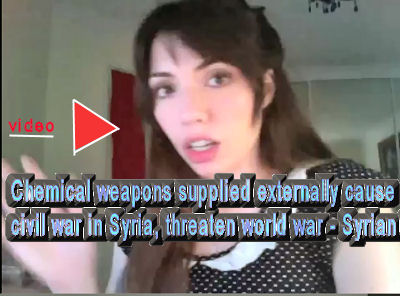
The western media have been deceitfully accusing the Syrian government of bombarding urban areas for over a year, without evidence. Now the Syrian government faced with a terrorist insurgency within its cities armed with more deadly weapons says that it has no choice but to bombard its own cities at the greater risk of civillian casualties. In the video, Russian news sources are cited asserting that Israel is smuggling weapons through Iraqi-Khurdistan (currently dominated by US corporate forces).
The United States and its NATO allies and the Arab dictatorships and Israel may have finally succeeded in getting the Assad government what it has so far avoided having to do. Mim Al Ahram, the Syrian Girl states that she holds NATO and its leaders, and not the Syrian government, responsible and she cites several sources for her broadcast. Please listen to it because she is warning us all that the Third World War is about to break out if Western populations continue to allow their governments to go after oil in a war-like manner. This outcome has been widely feared since oil-depletion scares began to resurface in the 1990s.
Why would the West promote instability in the Middle East?
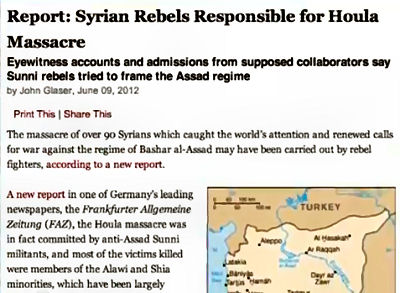
If it had not occurred to you before, please consider the motives the West has for stimulating instability in the Middle East in order to take that area over. Consider that there is a competition between Western and Eastern (Russian and Chinese) powers for the Middle East. This area is the backyard of Russia and China, but it was long been managed as colonies for the benefit of British, US and French petroleum companies. Before the 1980s China was too riven by poverty to pose much of a challenge to Western hegemony over world resources. Nor did she pose much competition as a consumer of resources then. Now she does. After the two World Wars Russia was pretty much put out of action and, with the fall of the iron curtain, the rise to power of the USSR failed. Initially the countries in the Middle East were colonies and the oil companies exploiting them were National companies belonging to the UK, France and the USA. Since the first oil shock in the 1970s, many of these countries became independent. Since then there has been a battle to bring them back to 'heal'.
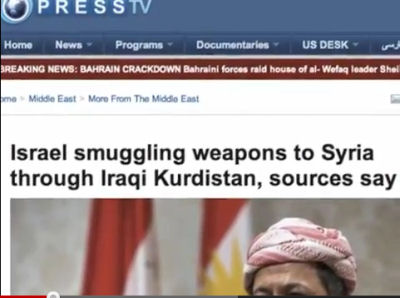
Role of Saudis
As often happens in colonisation, elites are given special privileges and immunity by colonial powers in return for managing their countries on behalf of those foreign powers. This is the way that the relationship between the Saudi Arabian royal family and the governments of the United States, the UK and even France is often interpreted. The Saudis are seen as oppressors of other Middle Eastern oil producing states or states located strategically near the oil producing ones.
West desperate to maintain economic growth
The competition for the Middle East and its oil reserves over the past few years has assumed a war-footing because, due to the declining availability of cheap oil, it is becoming extremely difficult for the US, the UK and the rest of Europe to maintain economic growth needed to maintain consumer economies and control over their growing populations. (Note however that the populations in the English speaking countries are growing much faster than in continental Europe, which, sensibly, is not stimulating population growth.)
Isolating Iran seems to be the major objective
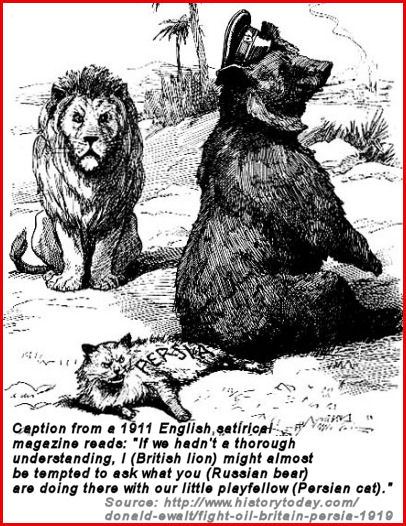
The immediate objective of the West seems to be to isolate Iran, which has relatively good reserves of accessible oil, and, since February 2008 has been encouraging an oil-trade that avoids using US dollars. See: http://en.wikipedia.org/wiki/Iranian_Oil_Bourse. This is part of a trend among lesser powers, some more familiarly thought of as 'undeveloped' which include South American and African petroleum producers to retain or take charge of their own economic destinies. Ghadaffi was a part of this. It is a movement similar to the 'third world' political alignment that created in the late 1960s OPEC - the Organization of. Petroleum Exporting Countries which creation was also accompanied by revolutions (but real ones) in the early 1970s. The control by OPEC of oil supply caused the 1972/3 oil shocks that also caused a 'revolution' in Western economics and a sharp divide between the more socially oriented policies of Western Europe and the savage capitalism of the Anglophone economies, led by Thatcher and then Reagan.
China and the US
Peak-oil discussions have long anticipated a show-down between China and the US over oil and have interpreted US military incursions in the Middle East since the invasion of Iraq to be an attempt to beat China to the 'prize' before China becomes too strong to beat or the US becomes economically too weak to maintain military control of this part of the world. The late Mark Jones was a petroleum expert and lived for a long time in Russia. This final stand between China and the US is the subject of his "The Battle of the Titans," in Sheila Newman (Ed) The Final Energy Crisis2nd Edition, Pluto Press, 2008.
Australia and the US
Australia depends a lot on the US for economic and military security.
The world is becoming very insecure because we are beginning to run into real problems maintaining our economies. Although Australia is currently apparently economically buoyant, what usually happens is that we start to go into recession and depression six months to a year after Europe and the US do. A theory as to why is that it takes that long for us to suffer from loss of buyers for our commodities. 'Emerging countries', notably Asian ones, tend to purchase our commodities for a while before they too lose their buying impetus and this delays our decline.
Why we have to abandon economic and population growth ASAP and start peaceful negotiations
If Australia and her Anglophone allies don't start to allow population growth to slow, land prices to fall (which will then greatly alleviate the cost of production and the need to produce and work so much) and production to reduce we will be forced into continuous wars which we can only lose, since neither we nor our allies have the local energy capacity to win them. To endorse the take-over of the Middle East is mad, in my opinion. What we should be doing is negotiating peacefully with Syria and her neighbours for long-term economic fair-sharing.
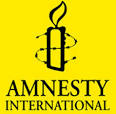


 Syrians despair as chemical weapons, advanced
Syrians despair as chemical weapons, advanced 



Recent comments